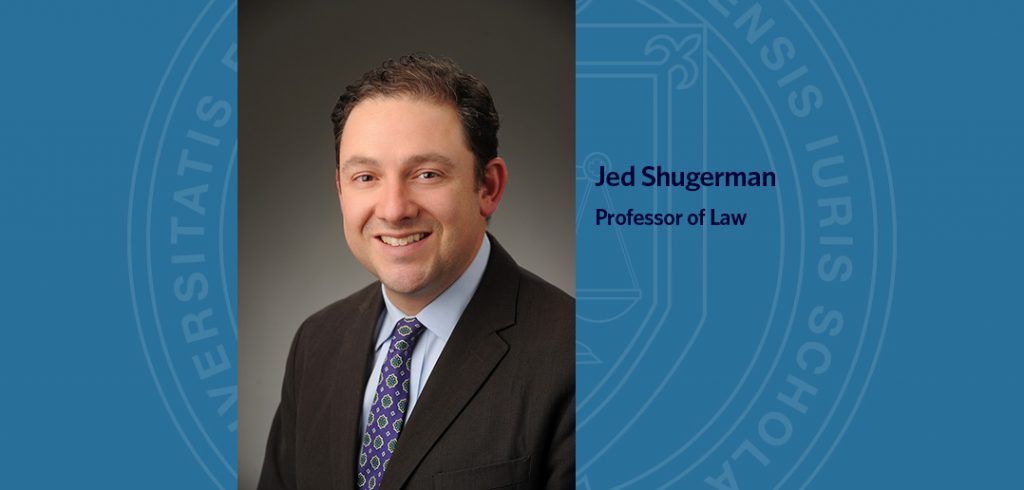Professor Jed Shugerman was quoted in Bloomberg Law on a potential self-pardon by President Trump.
Any move by President Donald Trump to pardon himself in his final days in office could backfire, legal experts say, inviting the incoming administration to challenge the unprecedented action by filing criminal charges against him.
Trump has raised the possibility of a self-pardon in recent days as calls grow for him to face prosecution for inciting the U.S. Capitol siege that resulted in five deaths and sent members of Congress scrambling for safety. But though the president has vast authority to grant clemency to others, a self-pardon would be a novel assertion of executive power that both Democrats and Republicans might want the Supreme Court to strike down.
…
Dangerous Precedent
The prospect of a prolonged fight that could distract from other policy goals may be one reason the Biden administration ultimately decides not to pursue charges against Trump. During the campaign, the president-elect also expressed concern about setting a dangerous precedent of prosecuting political opponents, saying it probably would be “not very good for democracy.”Even if it decides against charges, experts say the Justice Department could still challenge the validity of a Trump self-pardon by writing a more thorough, updated version of the 1974 memo, said Jed Shugerman, a law professor at Fordham. Though it wouldn’t have the binding legal force of a Supreme Court opinion, it might discourage future presidents from taking similar action in the future.

